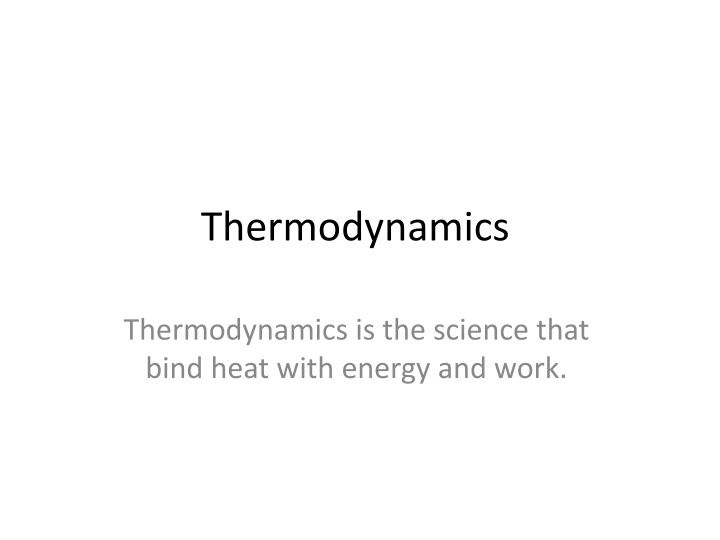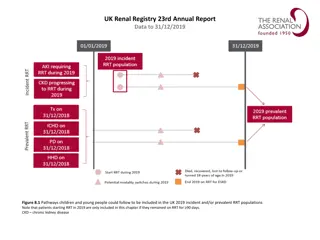
Understanding Thermodynamics: Laws, Entropy, and Energy
Explore the principles of thermodynamics, including its laws governing heat, energy, and work. Delve into the concepts of entropy, the first and second laws, and how energy is conserved within isolated systems.
Download Presentation

Please find below an Image/Link to download the presentation.
The content on the website is provided AS IS for your information and personal use only. It may not be sold, licensed, or shared on other websites without obtaining consent from the author. If you encounter any issues during the download, it is possible that the publisher has removed the file from their server.
You are allowed to download the files provided on this website for personal or commercial use, subject to the condition that they are used lawfully. All files are the property of their respective owners.
The content on the website is provided AS IS for your information and personal use only. It may not be sold, licensed, or shared on other websites without obtaining consent from the author.
E N D
Presentation Transcript
Thermodynamics Thermodynamics is the science that bind heat with energy and work.
Thermodynamics is controlled by four laws that are called thermodynamics. Heat and temperature. Work and energy. the four laws of
First law of thermodynamics First law of thermodynamics states that energy is conserved. That means that energy can`t be created or consumed. In another form, energy changes of an isolated system is constant.
First law of thermodynamics U = Q W Where U is the internal energy of a closed system. Q is amount of heat that is supplied to the system. W is the work that is done by the system on the surroundings. U = U2 U1. If there is no change in volume, it means no work W=0; U= Q.
Second law of thermodynamics Second law of thermodynamics states that at any spontaneous process in an isolated system the state of entropy (S) never decreases, S 0; in irreversible process S > 0, but in reversible process entropy remains constant , i.e. , S = 0. What is entropy? Entropy is a measure of disorder of a system.
S = Q/T (joule/K) . In irreversible process S2 > S1 in reversible process S is constant, S2= S1.
Entropy may decrease locally at some region within the isolated system. How can this statement be a) this cannot b) this is possible because entropy of an isolated system can c) it must be compensated by a greater increase of entropy somewhere within the system. d) none of justified? possible be decrease. the mentioned
Zeroth law of thermodynamics If each of two systems is in thermal equilibrium with a third one ( in contact), they are in thermal equilibrium with each other. This case is said to be equivalence relation .
Third law of thirmodynamics As a system approaches to absolute zero, al processes in the system cease and entropy approaches to a minimal value.






















